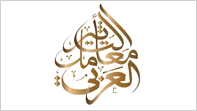The educational grammar lesson in light of the relationship between language, mind, and the world
DOI:
https://doi.org/10.51984/johs.v22i4.2965Keywords:
Educational grammar, World, mind, Language, Renewing the grammar lesson, Arabic language learners, The mind's perception of the worldAbstract
The instructional grammar lesson is considered one of the most important concerns for language enthusiasts as well as individuals and institutions. This is due to the deterioration and deviation that the Arabic language has experienced. The younger generation is no longer capable of mastering the language at the desired level or even at the minimum level. Therefore, the question of how to constantly renew the instructional grammar lesson has become a recurring one.
Thus, the aim of this research is to present a conceptualization of a project for re-reading Arabic instructional grammar in light of the relationship between the world, the mind, and the language. Since the research idea originated from the reality of Arabic language learners, the first element in this research was related to identifying the most important reasons for the weakness in Arabic language proficiency among learners. The second element involved presenting the most significant previous experiences that have reinterpreted Arabic grammar in the light of heritage and modern linguistic theories.
The third element addressed the essence of this research, which is to propose a project for re-reading Arabic grammar without completely disconnecting from heritage or previous experiments' achievements. The guiding idea of this research is that the mind perceives the world, and then language comes to describe the representation produced by this perception. Therefore, how does language form to correspond to the image of the world represented in?
Downloads
Downloads
Published
Issue
Section
Categories
License
Journal of Humanities Policy on Intellectual Property and Plagiarism
1. Commitment to Intellectual Property and Ethics
The Journal of Humanities (JOHS) is fully committed to respecting intellectual property rights and aims to protect the originality and authentic work of authors who submit their manuscripts for publication. The journal takes a firm stand against articles that contain any form of plagiarism and emphasizes the need for all researchers to adhere to the highest ethical standards in scientific research.
2. Anti-Plagiarism Policy
The journal considers plagiarism a serious violation of academic ethics. Therefore, authors must ensure that their work is original and not plagiarized, and that any use of external sources is properly cited and documented according to correct academic standards.
-
Actions Taken: In the event that any plagiarism or academic theft is discovered in a submitted article, the editorial board will contact the author to request a formal explanation within a maximum period of two weeks from the date of notification.
-
Investigation and Decision: After receiving the explanation, the article will be referred to the journal's specialized committees, which will investigate the matter and take the necessary measures, which may include the permanent rejection of the article and the imposition of disciplinary actions.
3. Publication License and Author Rights
The journal adopts the Creative Commons license type Attribution-NonCommercial-NoDerivs 4.0 International (CC BY-NC-ND 4.0), which allows for the following:
-
Attribution: Users are entitled to cite the content published in the journal and use it in their work, provided that the original source and author are clearly credited.
-
Non-Commercial: The published content may not be used for any commercial purpose.
-
NoDerivs: It is not permitted to make any modifications, distortions, or to build derivative works from the published content.
Under this license, authors are required to complete an exclusive license agreement for the journal. Authors retain the rights to their research data and may reuse and share their work for scientific purposes with proper citation.







